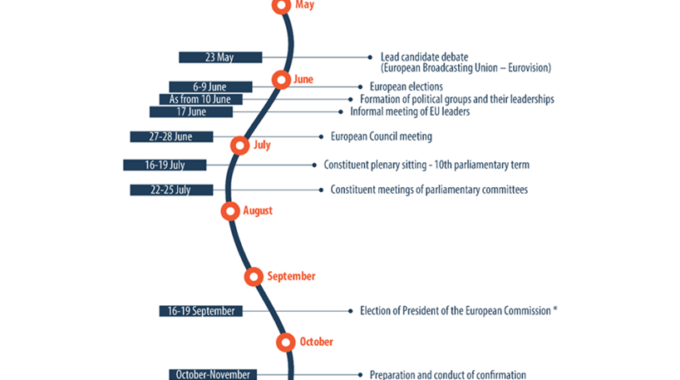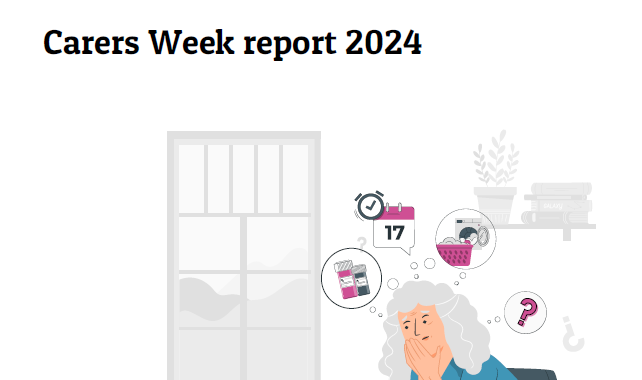
United Nations Economic Commission for Europe: UNECE – Supporting informal carers – six policy challenges and how to meet them
PRESS RELEASE by UNIGE
Everybody is likely to become a carer at some point in life, providing care for a spouse, family member, friend or neighbour with long-term care needs. The majority of such non-professional care, referred to as informal care, is provided by women.
Societies in the UNECE region heavily depend on informal carers to meet the growing demand for long-term care in ageing populations. While there are efforts to expand formal long-term care services to respond to this growing demand, informal carers are estimated to cover about 70 to 95 per cent of all care needs.
The European Social Survey on informal carers in 20 countries in the region found that on average one in three adults between 25 and 75 provided informal care, and about one in 13 were providing care for a minimum of 11 hours a week.
While informal unpaid care saves public spending on formal care services, it has many hidden costs that are borne primarily by informal carers, those they care for and their families, and ultimately concern society at large. These include the opportunity costs of lost earnings, careers and pension entitlements, as well as the health consequences of the physical and psychological burden experienced.
The latest UNECE Policy Brief on Ageing therefore focuses on the challenging roles of informal carers. It highlights six key policy challenges and presents strategies to address them, drawing on policy practice shared by members of the UNECE Working Group on Ageing:
1) Acknowledging the contribution of informal carers
Although informal carers cover a great part of the care needs, they are often called the ‘invisible workforce’ in long-term care systems as they are rarely registered or counted, and their status as informal care provider is often not formally recognized. Strengthening the voice and representation of informal carers is the first step to address the challenges facing informal carers. In the Czech Republic, a new multi-layered government-funded project has been initiated to rigorously understand the current situation of informal carers, and to raise awareness among the general public, informal carers, and relevant stakeholders. The project includes a wide range of activities from analytical and research activities to educational seminars, awareness raising events, and practical guides for both informal carers and relevant stakeholders.
2) Enabling informal carers to reconcile care with employment and personal lives
Informal carers are often challenged to reconcile employment and other responsibilities in their personal lives with care requirements, which can require a significant time commitment. The entitlement to care leave and flexible work arrangements are two main support measures which can help informal carers to keep a balance between their personal lives and caring. In France, for example, employees can apply for the familial solidarity leave and/or the caregiver leave for their family members or persons sharing the same home, for up to three months with the possibility of renewal. German legislation on flexible working arrangements allows working carers to take part-time care leave over a period of up to 24 months while continuing to work a minimum of 15 hours per week.
3) Providing informal carers with an adequate income and social security
Informal carers sometimes need to reduce their working hours or even quit their jobs to meet care responsibilities. This may result in not only an immediate lack of income, but also a subsequent lack of pension entitlement. In addition, financial burden can be aggravated by expenses related to the special needs of the person with care needs, or the cost of adaptations required to make the living environment more accessible. There are a number of ways in which informal carers can be financially supported. In Ireland, for example, a means-tested carer’s allowance is paid to informal carers to support full-time care. This allowance lasts until 12 weeks after the end of informal care to financially help the carers to prepare for their post-caring lives. Some countries allow informal carers to be employed by the municipality, with a wage similar to a formal home helper (e.g. Finland and Sweden); or acknowledge informal carers’ contributions by covering their contributions to social pension insurance (for example in Austria, Germany and Luxemburg).
4) Access to community-based services
The lack of access to community-based services is another problem faced by informal carers. Day care services and home care assistance are examples of the community-based services that enable informal carers to have time for employment or personal lives. In Malta, a ‘Respite at Home’ service was established in 2017 to provide formal care support in the home of older persons by a qualified carer, to provide some time off to the informal carer.
5) Access to information and training
Informal carers do not normally have enough time to prepare for their new role. It often happens all of a sudden, without any relevant information or training provided in advance. It is important to make useful information and training easily accessible and available to informal carers via different channels including telephone, online, and/or service centres. To facilitate access to information, a “one-stop-shop” support centre was established in the Finnish South-Savo region, providing over 70 services ranging from information and counselling to preventive services in one place.
6) Protecting the health and well-being of informal carers
Informal care can be physically and mentally demanding, leading carers to often feel exhausted, lonely, and strained. Moving care recipients to residential care homes can be one of the ways to reduce the burden on informal carers, especially when care needs are intensive and have a negative impact on the health and well-being of the informal carer. Peer support groups can also play an important role in reducing social isolation and providing a network for mutual support. In Ukraine, self- and mutual help groups have been set up in 9 cities for families caring for people with dementia. This project not only provides informal carers with access to information on dementia, but also allows them to socialize and take a break from care giving and share with others.
Adequate support and social protection for informal carers will enhance choices, health and well-being and reduce the risks of social exclusion.
Read more:
Policy Brief on Ageing No. 22 The Challenging Roles of Informal Carers
Policy Seminar on Ageing 2019 – Informal care for persons with dementia





